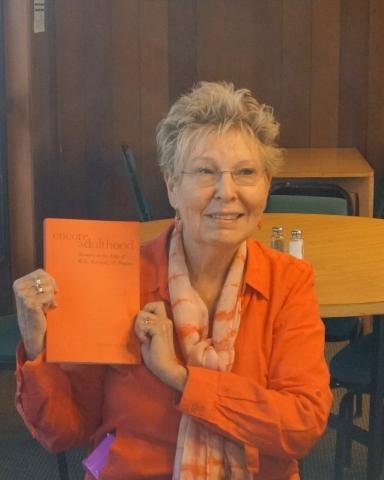
CASBS fellow Phyllis Moen is lead author of a new study showing that workers who participate in a pilot work flexibility program report improved overall well-being compared with employees within the same work environment who do not participate.
The study is notable because it is the first to use a control group to measure the effectiveness of such a program in a U.S. firm.
The pilot program participants learned about and implemented practices designed to increase their sense of control over their work lives. The results were definitive. Participants felt more control over their schedules, support from their bosses, and were more likely to say they had enough time to spend with family.
A Press Release from the Massachusetts Institute of Technology announces the results and describes the researchers’ methodology. As Moen notes in the release, “Our research demonstrates that workers who are allowed to have a voice in the hours and location of their work not only feel better about their jobs, but also less conflicted about their work-to-family balance. Crucially, these workers are also more efficient and more productive on the job. In other words, workplace flexibility is beneficial — not detrimental — to organizations.”
The study has earned media coverage from Bloomberg Business as well as a profile in New York Times Magazine. Moen an co-author Erin Kelly also outlined their research and prescriptions in the Huffington Post.
The full research article – “Does a Flexibility/Support Organizational Initiative Improve High-Tech Employees’ Well-Being? Evidence from the Work, Family, and Health Network” – is published in the February 2016 issue of the American Sociological Review (ASR). Access the article here.
Moen followed this in April as lead author of "Organizational Change Around an Older Workforce," published in The Gerontologist. The article finds that "organizations are leading change by developing universal policies and practices, not ones intentionally geared to older workers," and that such uniformity represents a "reluctance to delineate special policies for older workers." Access the article here.
Both works are integral to a book project Moen is launching during her fellowship year at CASBS. With collaborator Erin Kelly, Moen is studying the complex and shifting nature of both work and the workforce within an individual organization in the contemporary United States. The aim is to delineate the change process as an intervention designed to promote greater employee control over their time spent at work. This research is unique in that it investigates an organizational redesign challenging outdated rigidities as well as showcasing new ways of flexible working that better fit the intricacies of work and life in the 21st century.
Bookends to a Productive Fellowship Year

The journal articles and media attention also served as the connective tissue between two achievements near the beginning and end of Moen's fellowship year at CASBS. As reported in a previous CASBS newsletter, on October 1, 2015, Moen and co-authors received the 2015 Rosabeth Moss Kanter Award for Excellence in Work-Family Research for the article“Changing Work and Work-Family Conflict: Evidence from the Work, Family, and Health Network,” published in ASR in 2014.
Months later, in April 2016, Moen released her book Encore Adulthood: Boomers on the Edge of Risk, Renewal, & Purpose, published by Oxford University Press. In the book Moen uses in-depth interviews with Boomer women and men as well as trends in census data to chronicle the risks and opportunities of the "encore" years — the time between family- and career-building and old age.
Notably, Moen finished and released the book at CASBS during her fellowship year — a remarkable, first-of-its-kind accomplishment that earns Encore Adulthood a place in the Center's famed Ralph W. Tyler Collection. Indeed, in the book’s acknowledgments (p. 227) Moen notes:
I…want to acknowledge the support of Margaret Levi and the Center for Advanced Study in the Behavioral Sciences (CASBS) at Stanford University. My CASBS fellowship provided the time necessary to complete the volume as well as supportive atmosphere, and my cohort of fellows provided important insights.
CASBS fellows and staff held a book release celebration in Phyllis's honor on April 27.
Phllis Moen holds the McKnight Presidential Chair and is Professor of Sociology at the University of Minnesota. She also is president of the Work and Family Researchers Network.
(This story was first published on February 25, 2016. Updated on June 25.)
Related story: Moen Co-authors Award-Winning Article

